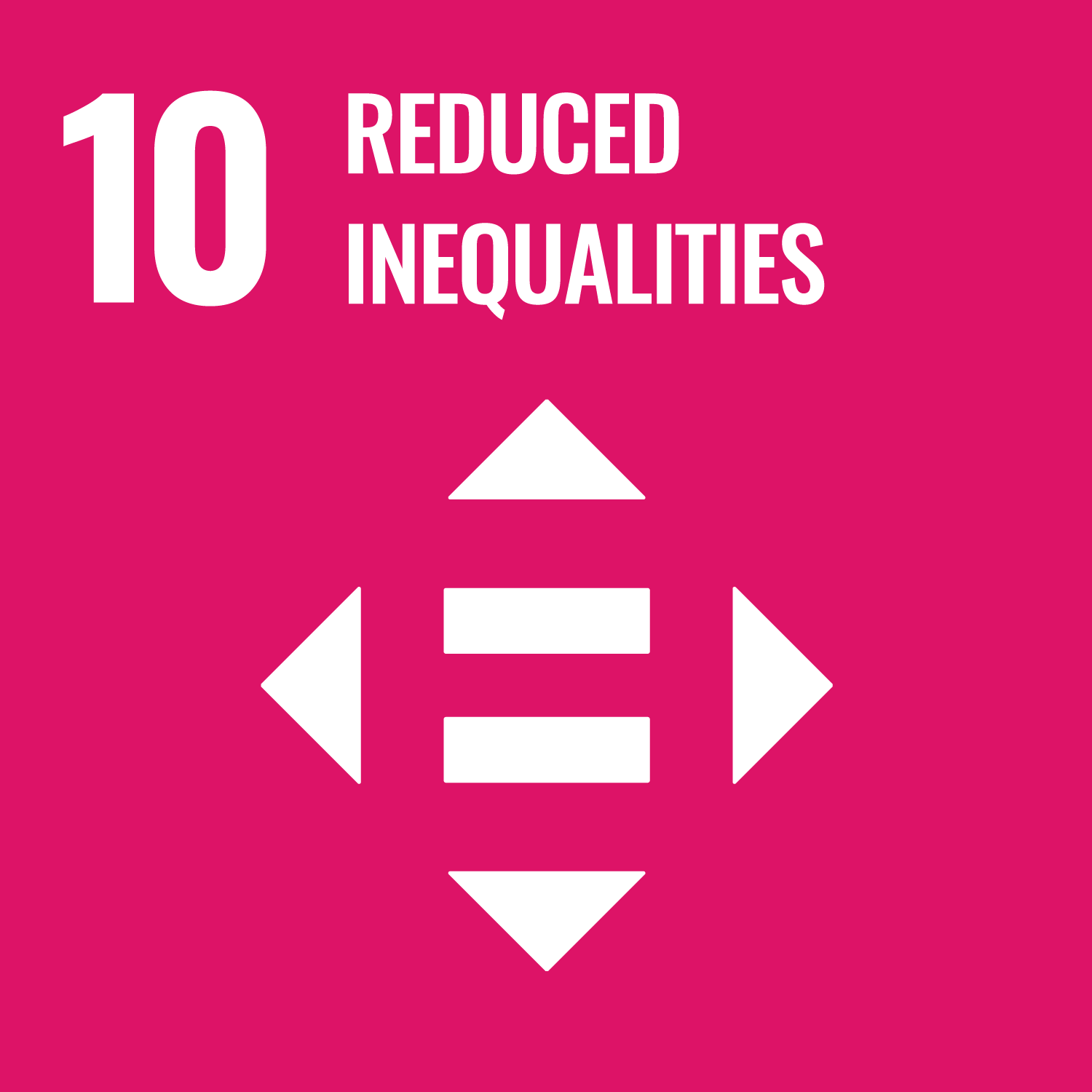目標10:減少不平等

1ST GENERATION STUDENTS AND STUDENTS FROM DEVELOPING COUNTRIES REPORT
A first-generation student is one who reports that they are the first person in their immediate family to attend university at any level (note - the individual may have studied at another university previously).
The proportion of 1st generation students is 27.76%. In 2020, a total of 4,106 students were starting their first degree, 1,140 of whom were first-generation students.
A total of 1,192 international students from low or lower-middle income countries (as defined by the World Bank) received financial support to study in 2020.
These students receive financial aid that significantly supported their studies, including tuition and fees, housing and living costs, and study materials.
PROPORTION OF STUDENTS AND EMPLOYEES WITH DISABILITIES
“Disabilities” can be defined to include only impairments, or impairments and activity limitations, or impairments, activity limitations, and participation restrictions (as defined by the International Classification of Functioning, Disability and Health), thus providing a standard language and framework for the description of health and health-related states.
Out of a total of 13,852 students, 47 (0.34%) had disabilities.
Out of 1,754 employees in 2020, 61 (3%) had disabilities.
UNIVERSITY NON DISCRIMINACY POLICY AND PLAN
According to Articles 3 and 6 of Taipei Tech's Academic Policy, restrictions on admission to university departments is are limited to academic qualifications. In line with the Taiwan Joint Commission of Technological and Vocational College Admissions Committees, the departments at the university do not require the “gender” field to be filled in. In addition, the application guide uses non-discriminatory terms in compliance with the Convention on the Rights of Persons with Disabilities (CRPD). Furthermore, to implement a non-discriminatory policy, the Taipei Tech Graduate School Admissions Committee has approved a policy requiring that applications have no gender or race requirements.
In 2020, Taipei Tech's five-year junior college and university had a combined admissions quota of 105 disadvantaged students, including 55 indigenous students, 19 economically disadvantaged students, 25 students from outlying islands, and 6 disabled students. 38 students enrolled through these quotas. In addition, 33 economically disadvantaged students and 1,654 female students applied for admission to the school’s research institute; 13 economically disadvantaged candidates and 419 female students were admitted. A total of 976 disadvantaged students enrolled in 2020.
Taipei Tech attaches great importance to the rights of disadvantaged students. To ensure that such students have equal opportunity, we plan to offer additional admissions quotas for disadvantaged students, including economically disadvantaged students, students from outlying islands, indigenous students, and students with disabilities. Furthermore, one responsibility of annual committee meetings is to track disadvantaged students and encourage all departments to increase enrollment quotas. Our recruiting policies comply with all applicable laws and regulations, and our recruitment information is transparent to the public. The school welcomes disadvantaged students to participate in recruitment. We have hired staff from a range of backgrounds. Taipei Tech has recruited 61 staff members with disabilities and eight indigenous people in compliance with Article 38 of the Law on the People with Disabilities Rights Protection Act.
UNIVERSITY SUPPORT SERVICES TO COMBAT GENDER DISCRIMINATION
Our university has set up the Gender Equality Education Committee as a platform to promote gender equality education and accept cases related to the Gender Equity Education Act. In accordance with Executive Yuan regulations, the university conducts five hours of democratic governance value courses annually for faculty and staff (including gender mainstreaming, integrity and service ethics, human rights education, administrative neutrality, multiculturalism, citizen participation, etc.).
Taipei Tech offers mentoring, counselling, scholarships, peer support, and the Jade Project for disadvantaged students, including 12 guidance and subsidy mechanisms, to assist them in fulfilling their academic and daily needs. In 2020, 1551 disadvantaged students received financial aid from the Jade Project. More than $10,666,400 NTD was granted to those students. In addition, we provide mental, health, and legal counselling services to our underrepresented staff and faculty to meet their needs.
After years of continuous improvement, our current campus and all buildings have barrier-free facilities that comply with laws and regulations, providing a barrier-free and friendly campus environment.
Supported by the Higher Education SPROUT Project, Taipei Tech offers the Jade Project, which provides tutoring and mentoring programs for disabled students who have poor academic performance. We hire top students or graduate students to serve as teaching assistants and arrange individualized remedial learning programs for disabled students.
The Resource Classroom of Taipei Tech provides peer support to disabled students according to their individual needs to assist in their everyday lives and learning, including transportation assistance for those with physical disabilities and simultaneous listening and typing assistance for hearing-impaired students in class.
Taipei Tech provides mentoring and consulting services to people with disabilities, including evaluating their special educational needs and formulating individualized support plans. We evaluate students’ physical and mental status, analyze their personal abilities, assess their academic and life needs, and plan and implement support strategies to meet their needs.
To properly manage the dormitory application process and quality of life, Taipei Tech has formulated reasonable accommodation policies and regulations, including priority application for disabled students. Taipei Tech provides barrier-free, disabled-friendly dorms. Students with accessibility needs can request for barrier-free accommodations in accordance with the Operational Directives for Barrier-free Accommodations in NTUT East Dormitory.





 10608 台北市忠孝東路三段1號
10608 台北市忠孝東路三段1號 Tel:886-2-2771-2171#1021
Tel:886-2-2771-2171#1021